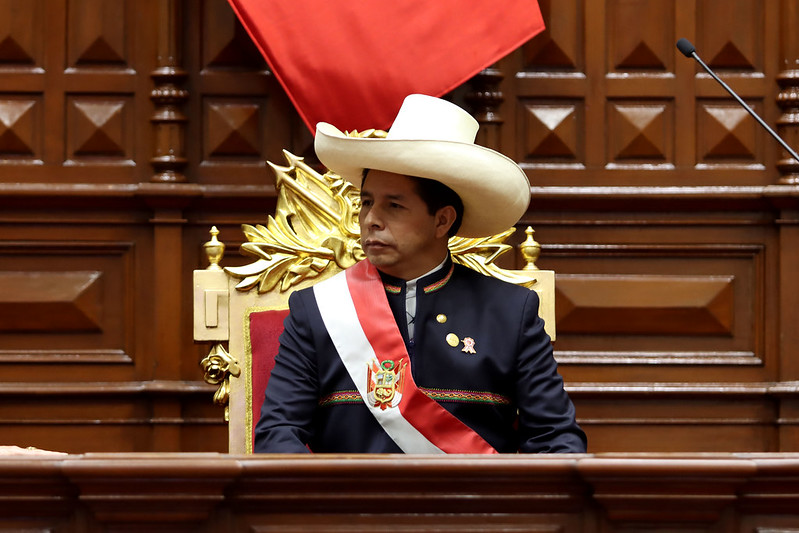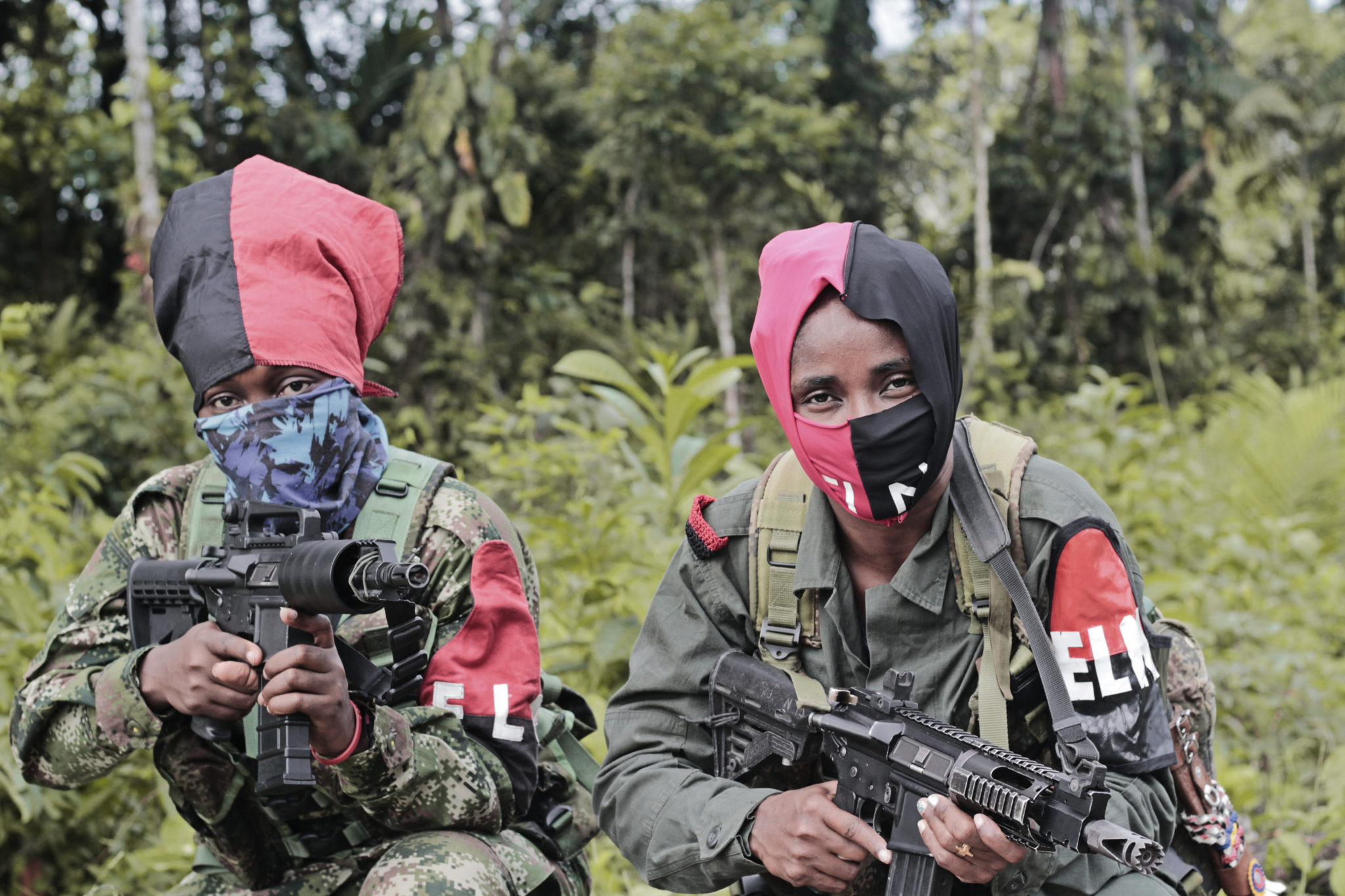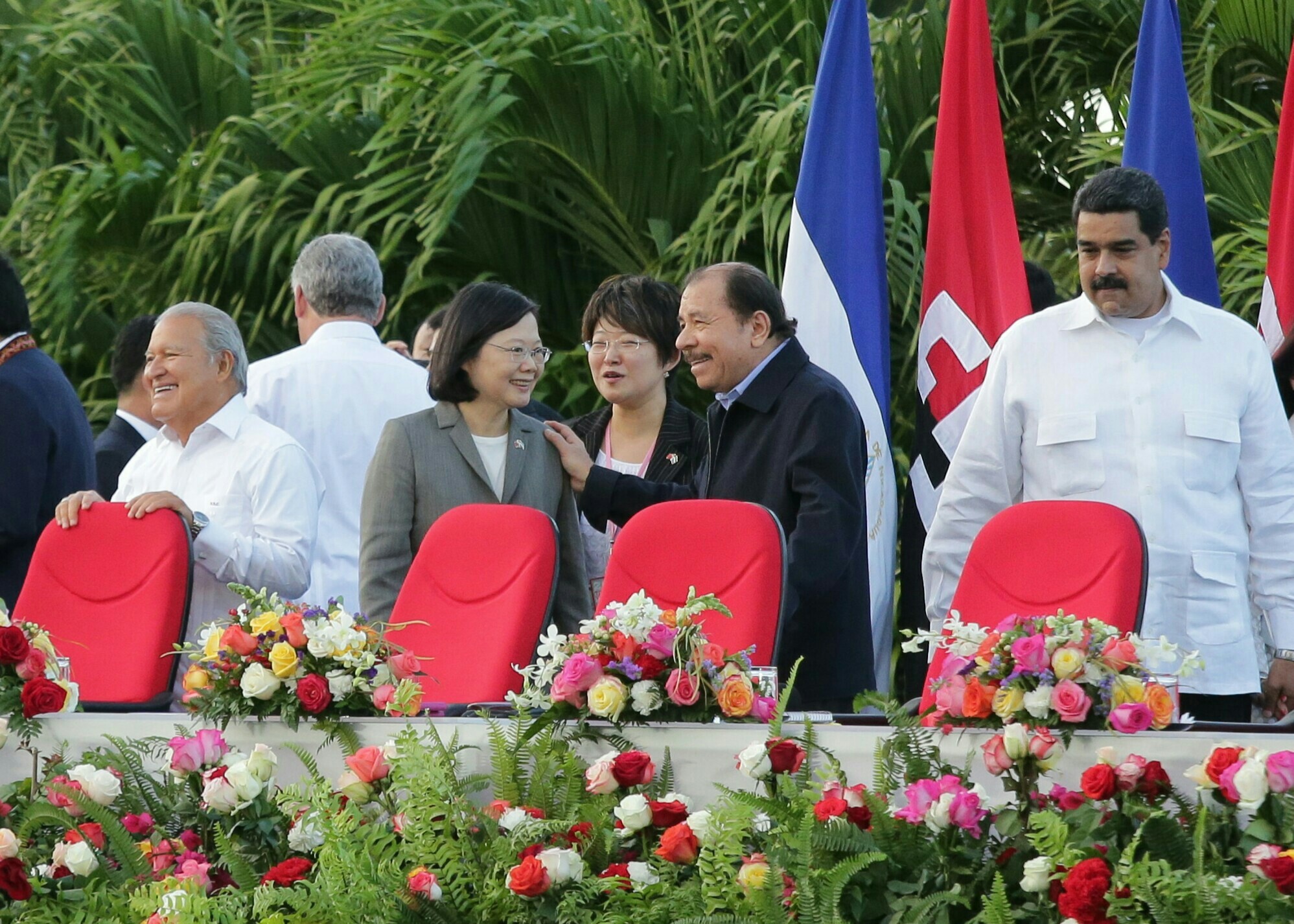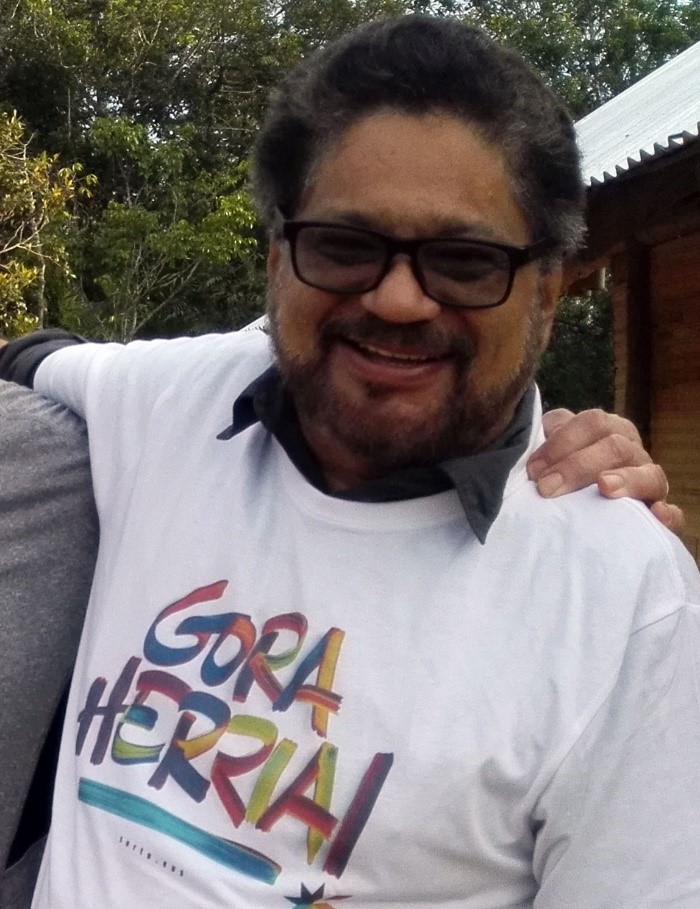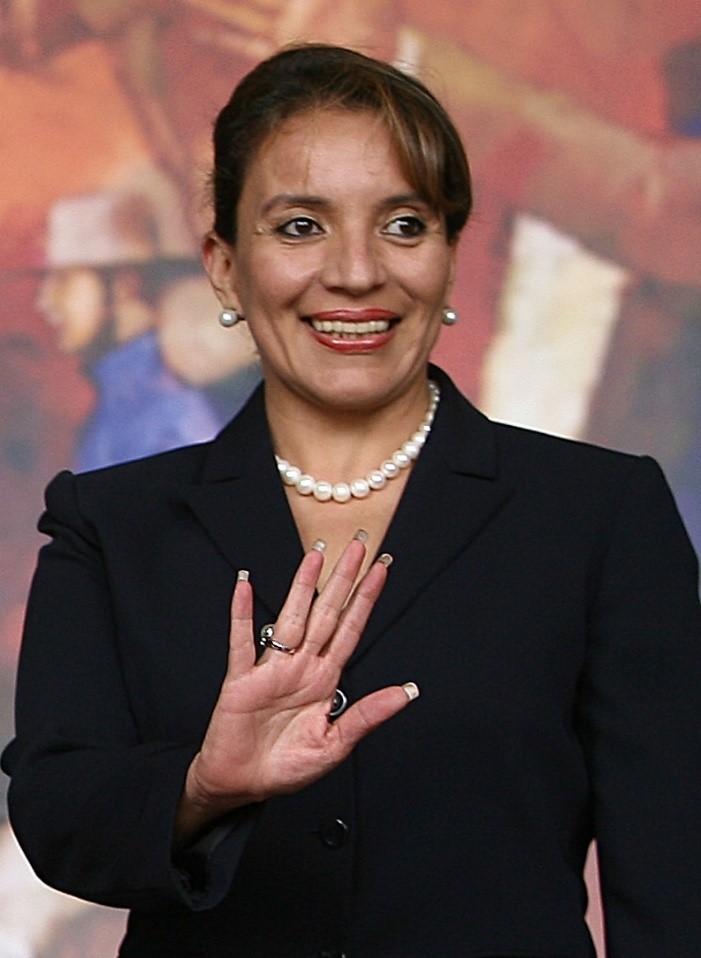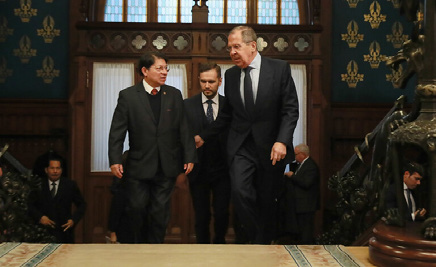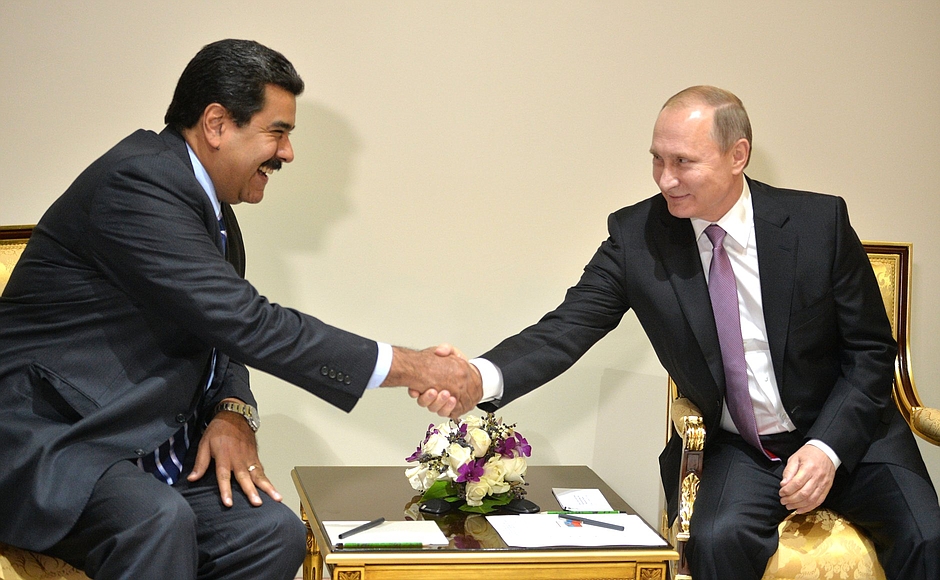
Russian President Vladimir Putin and Venezuela’s Nicolás Maduro.
“Russia said in December that escalating tensions over Ukraine could lead to a repeat of the Cuban missile crisis, when the world teetered on the brink of nuclear war.”
Many countries in Latin America opted to say little about Russia’s invasion of Ukraine because of their reticence to ruffle their relationships with Russia. This relative silence is the result of persistent Russian attempts to cultivate influence with anti-Western Latin American leaders in the United States’ backyard as a way to counterbalance Western actions in what the Kremlin considers its sphere of influence. Center-left Argentine news outlet Infobae reports that Deputy Prime Minister Yuri Borisov visited the region and met with Russia’s most important allies in Venezuela, Nicaragua, and Cuba. Borisov promised closer relations and greater “strategic depth” to Russia’s security cooperation. In turn, the regimes in Venezuela, Nicaragua, and Cuba have parroted Russian talking points about NATO and sanctions. Further, Brazil’s president Jair Bolsonaro and Argentina’s president Alberto Fernández both visited Putin in Moscow shortly before the war, according to Spain’s politically left-leaning main daily El País. Russia’s Deputy Foreign Minister Sergei Ryabkov recently stated that Russia had the ability to deploy forces and equipment to Latin America through its security and cooperation agreements. Russia’s pattern of outreach to Latin America is not new since its invasion of Ukraine on 24 February 2022: similar diplomatic and military visits presaged Russia’s invasion of Georgia in 2008 (then President Dmitri Medvedev) and its invasion of Crimea in 2014 (Putin himself).
Source:
“Rusia continúa estrechando lazos con las dictaduras latinoamericanas (Russia continues to strengthen ties with Latin American dictatorships),” Infobae (Argentine news outlet generally seen as center-left politically), 19 February 2022. https://www.infobae.com/america/america-latina/2022/02/19/rusia-continua-estrechando-lazos-con-las-dictaduras-latinoamericanas-el-viceprimer-ministro-de-putin-visito-cuba/
Borisov arrived on the island after visiting Nicaragua and Venezuela, Russia’s key allies in Latin America, and said Russia would also deepen bilateral ties with the two countries…Russia said in December that escalating tensions over Ukraine could lead to a repeat of the Cuban missile crisis, when the world teetered on the brink of nuclear war…Cuban dictator Miguel Díaz-Canel discussed coordinating a ‘strategic partnership’ with Putin in January, as tensions began to rise in Ukraine.
Source: “Ucrania, una guerra incómoda para Brasil y Argentina (Ukraine, an uncomfortable war for Brazil and Argentina),” El País (Spain’s main daily generally considered politically-left), 1 March 2022. https://elpais.com/internacional/2022-03-02/ucrania-una-guerra-incomoda-para-brasil-y-argentina.html
Bolsonaro’s Brazil and Fernández’s Argentina have been trying to remain neutral since Russia invaded Ukraine on February 24. Only eight days had passed after the Brazilian president was received in Moscow by Vladimir Putin and twenty since a similar visit by the Argentine. Both Latin American presidents then highlighted the good relations they maintain with the Kremlin. But the war has turned everything upside down. The diplomatic tension leaves little room for the grays, and both Bolsonaro and Fernández, located at the ideological poles, face domestic problems due to their international positioning.
Image Information:
Image caption: Russian President Vladimir Putin and Venezuela’s Nicolás Maduro.
Source: Kremlin.ru via Wikimedia, https://commons.wikimedia.org/wiki/File:Vladimir_Putin_%26_Nicol%C3%A1s_Maduro_in_Tehran,_24_November_2015.jpg
Attribution: CC BY 4.0

